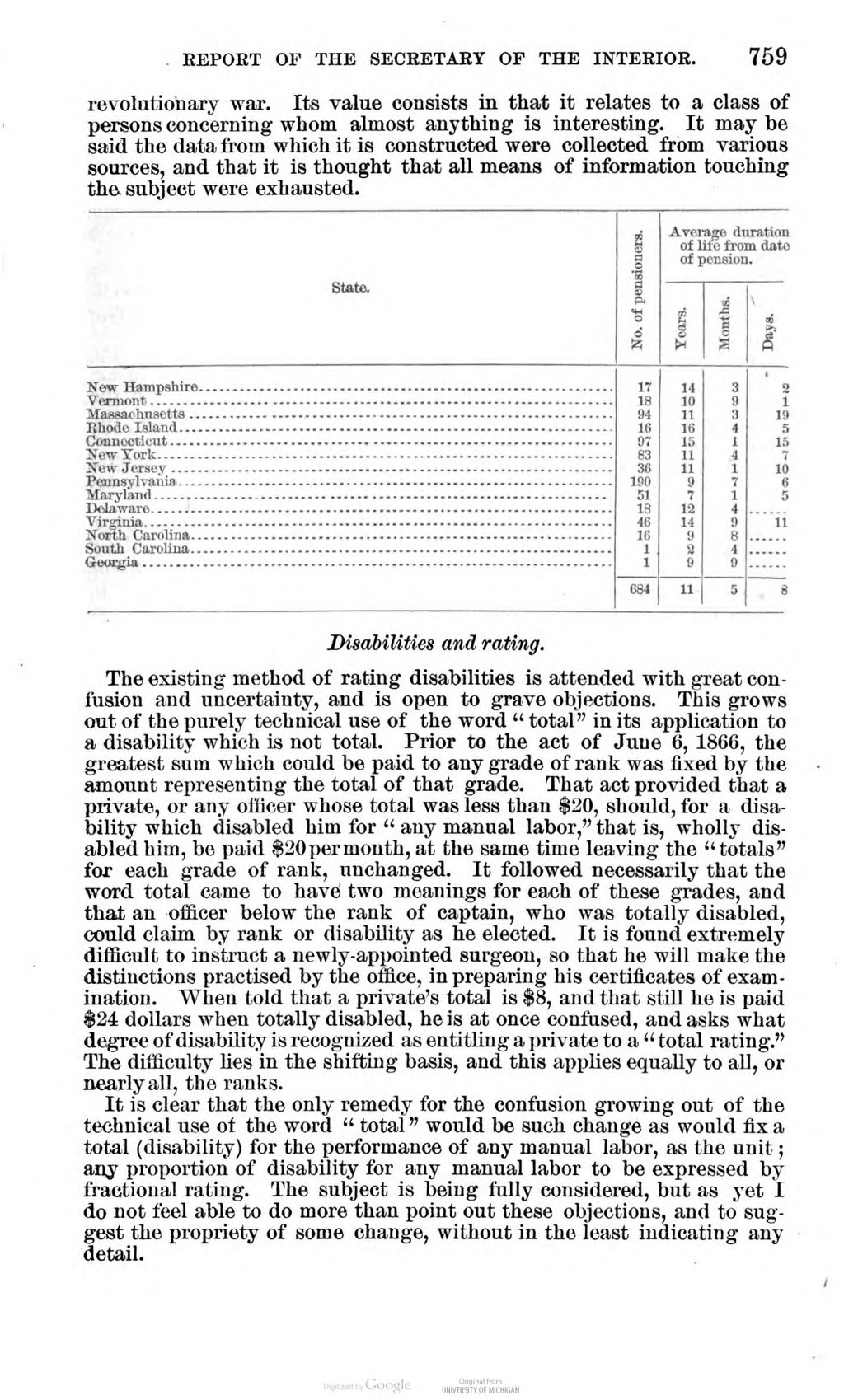revolutionary war. Its value consists in that it relates to a class of persons concerning whom almost anything is interesting. It may be said the data from which it is constructed were collected from various sources, and that it is thought that all means of information touching the subject were exhausted.
| State | No. of pensioners | Avergae duration of life from date of pension | ||
| Years | Months | Days | ||
| New Hampshire | 17 | 14 | 3 | 2 |
| Vermont | 18 | 10 | 9 | 1 |
| Maaachusetts | 94 | 11 | 3 | 19 |
| Rhode Island | 16 | 16 | 4 | 5 |
| Connecticut | 97 | 15 | 1 | 15 |
| New York | 83 | 11 | 4 | 7 |
| New Jersey | 36 | 11 | 1 | 10 |
| Pennsylvia | 190 | 9 | 7 | 6 |
| Maryland | 51 | 7 | 1 | 5 |
| Delaware | 18 | 12 | 4 | |
| Virgina | 46 | 14 | 9 | 11 |
| North Carolina | 16 | 9 | 8 | |
| South Carolina | 1 | 2 | 4 | |
| North Carolina | 1 | 2 | 4 | |
| Georgia | 1 | 9 | 9 | |
| 684 | 11 | 5 | 8 | |
Disabilities and rating.
The existing method of rating disabilities is attended with great confusion and uncertainty, and is open to grave objections. This grows out of the purely technical use of the word " total " in its application to a disability which is not total. Prior to the act of June 6, 1866, the greatest sum which could be paid to any grade of rank was fixed by the amount representing the total of that grade. That act provided that a private, or any officer whose total was less than $20, should, for a disability which disabled him for " any manual labor," that is, wholly dis~ abled him, be paid $20 per month, at the same time leaving the "totals" for each grade of rank, unchanged. It followed necessarily that the word total came to have two meanings for each of these grades, and that an officer below the rank of captain, who was totally disabled, could claim by rank or disability as he elected. It is found extremely difficult to instruct a newly-appointed surgeon, so that he will make the distinctions practised by the office, in preparing his certificates of examination. When told that a private's total is $8, and that still he is paid $24 dollars when totally disabled, he is at once confused, and asks what degree of disability is recognized as entitling a private to a " total rating."
The difficulty lies in the shitting basis, and this applies equally to all, or nearly all, the ranks.
It is clear that the only remedy for the confusion growing out of the technical use of the word " total " would be such change as would fix a total (disability) for the performance of any manual labor, as the unit; any proportion of disability for any manual labor to be expressed by fractional rating. The subject is being fully considered, but as yet I do not icel able to do more than point out these objections, and to suggest the propriety of some change, without in the least indicating any detail.
